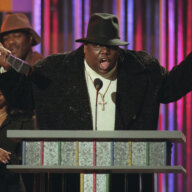Councilman Wilson Goode, Jr., after introducing legislation last week that would change the city’s 10-year real estate tax abatement on all newly-constructed or improved properties to five years, was blunt in his motive.
“The most direct beneficiaries of 10-year abatements are real estate developers and wealthy private homeowners,” Goode said. “In other words, the few, the new and the well-to-do, not the city of Philadelphia as a whole.”
His proposal is far from certain, according to Greater Philadelphia Association of Realtors President Barbara Capozzi, who said advocacy groups are currently preparing for a massive lobbying effort against the bill.
“I do not expect in the end the 10-year abatement will be touched. There is too much hard data to prove that the [abatement] was the very best tax policy this city has ever passed. Hard facts, even City Council has to listen to the facts!” Capozzi said in an email.
Goode yesterday stressed that he is proposing modifying, not abolishing it, and that his legislation should be considered in the context of a broader planned tax overhaul.
“Under the current five-year plan, we’ll see business taxes go down, wage taxes go down, sales taxes go down and we’ll see property taxes go up for some,” he said. “And the question is whether it’s fair for property taxes to go up for some and for them to share in a larger burden as we continue a program that gives a 10-year, 100 percent abatement to others without reconsidering whether it is fair and appropriate.”
Well-known city realtor Mike McCann said despite misconceptions, the abatement does not totally forgive property taxes, but temporarily freezes them pre-construction rate for the parcel of land.
“Before this tax abatement, I never saw new construction from 1986 to 1999,” he said. “People weren’t building new houses. They made the abatement and people started building on vacant ground. They filled in so many vacant lands. I have no idea why they would do this – the market is so fragile as it is.”
He credits the abatement with keeping Philadelphia’s home prices higher through the recession than those in surrounding suburbs and with an estimated 10,000-person population boom in Center City.
Nutter in ’07 supported reducing abatement
A spokesman for Mayor Michael Nutter said it was too soon to speculate on the possible effects of the legislation, if passed, saying only that “we’ll have a response if and when the matter is taken up at a hearing.”
But a campaign policy paper released by Nutter in 2007 titled, “An Honest Budget Now: The Nutter Plan to Bring Fiscal Integrity to City Government,” seems to support at least some of Goode’s proposed modifications.
“In neighborhoods where the market is strong enough to operate with less incentive, the period of the abatement will be reduced to five years,” Nutter wrote in a portion of the document vowing to overhaul the abatement. “Everywhere else in the city, the period will be increased to 15 years.
Furthermore, the value of the abatement will be reduced to 90 percent of the property tax owed during the period and the remaining 10 percent will be deposited by developers into a trust fund dedicated to the provision of affordable housing throughout the city.”
Tax code overhaul
The city’s five-year plan recently approved by the Pennsylvania Intergovernmental Cooperation Authority:
Ends a 2009 increase that raised the local sales tax from 1 percent to 2 percent
Resumes in fiscal year 2014 a wage tax reduction plan that was suspended in 2010
Eliminates business taxes starting in fiscal year 2013 for the first two years of new businesses’ operations
Eliminates the business privilege license fee for all business by fiscal year 2014
Moves to the Actual Value Initiative, in which properties are taxed based on their true market values, which will likely result in a “substantial increase,” especially for longtime owner-occupants in neighborhoods that have improved since homes were last assessed.





























